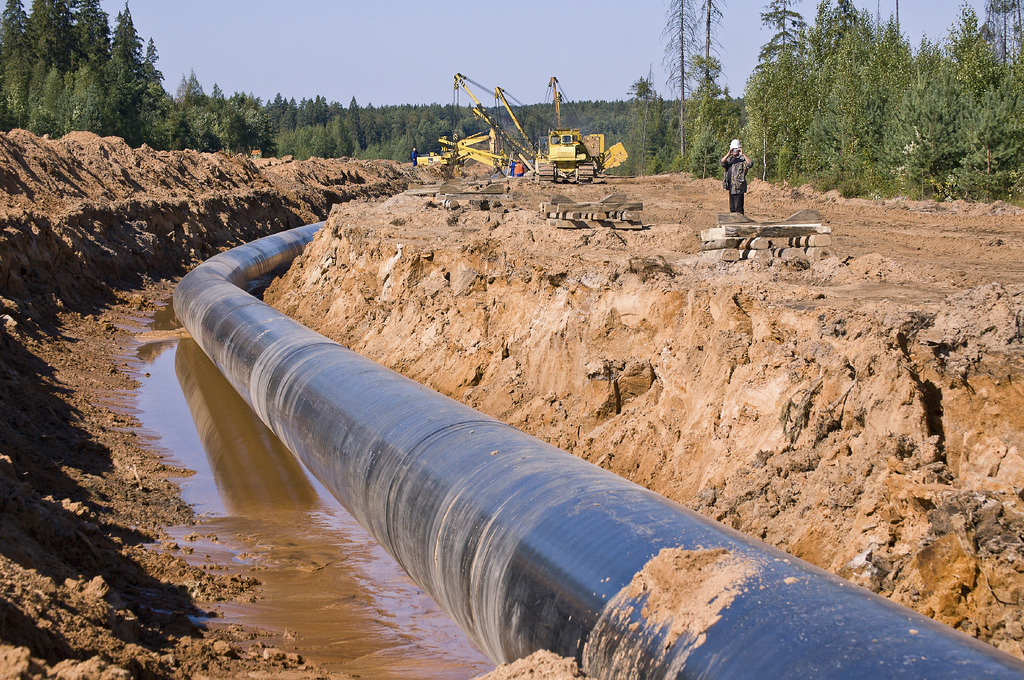Executives of Afreximbank ppledged to double-down on their commitment to a just energy transition on the continent at COP29 in Azerbaijan about the impact of climate change on Africa.
However, four months later, the multilateral lender has confirmed its support for a controversial pipeline that would carry crude oil from Uganda to the Tanzanian coast for export overseas. It was announced this week that the African Export-Import Bank – whose main shareholders are African governments – would be part of a syndicate of financial institutions committing a first tranche of external financing to the East Africa Crude Oil Pipeline (EACOP) project, which is majority-controlled by French energy giant TotalEnergies.
Other lenders include South Africa’s Standard Bank, Uganda’s Stanbic Bank and KBC Bank, and Saudi Arabia’s Islamic Corporation for the Development of the Private Sector, according to a statement published by EACOP’s developer, which called the financing deal “a significant milestone”.
The loan is in the range of $1 billion, with two further tranches expected, according to the government-owned Ugandan newspaper New Vision. Afreximbank earlier indicated it would provide $200 million to the project. Samuel Okulony, CEO of the Environment Governance Institute, a Ugandan NGO, told Climate Home that Afreximbank’s actions are in direct contradiction of their “empty words” on climate change.
“Afreximbank is funding the destruction of our own people, while at the same time speaking about energy transition and a commitment to a cleaner future. It is a big disappointment,” he said.
The 1,443-km pipeline would carry crude oil extracted from oilfields under development near Lake Albert in Uganda to Tanga port in Tanzania for onward export to international markets. The long-delayed project has been the target of protests and lawsuits from campaigners that accuse the project developers of displacing communities, damaging the environment and fuelling the climate crisis.
A coalition of regional civil society groups said on Thursday it is a “shame” that the EACOP developer would announce financing for the project on a day many Ugandans had come face-to-face with the dire impacts of global warming. This stark reality was evident on the front page of the state-owned New Vision newspaper, which published the EACOP announcement just above a picture of the deadly floods that hit the capital Kampala this week.
The coalition said it is considering “legal and other actions” against financial institutions that “continue to prioritise profits over the lives and wellbeing of East Africans. Campaigners said the project has already displaced thousands of people and stands to harm plants and animals, while also threatening livelihoods in the farming and tourism sectors.
The construction of the pipeline is a key element in Uganda’s push to become an oil producer, which the government says would propel the country’s economic growth.
The East African nation has been looking to exploit its natural resources for nearly two decades since oil reserves were discovered in the Albertine Rift Basin near the Democratic Republic of Congo. But development stalled as the plans faced local opposition and the project struggled to attract external financing.
Several Western banks, including BNP Paribas, Société Générale, Barclays and Standard Chartered, have publicly stated their intention not to pour money into the project. Ugandan energy minister Ruth Nankabirwa, who has blamed activists for the project’s setbacks, said last September that at least seven European banks had committed, in private, to finance the project, the Financial Times reported – but no official announcement has materialised since then.
Story was adapted from Climate Home News.
